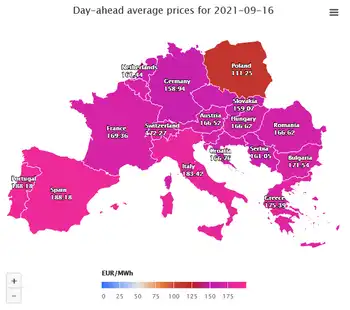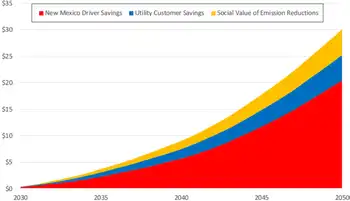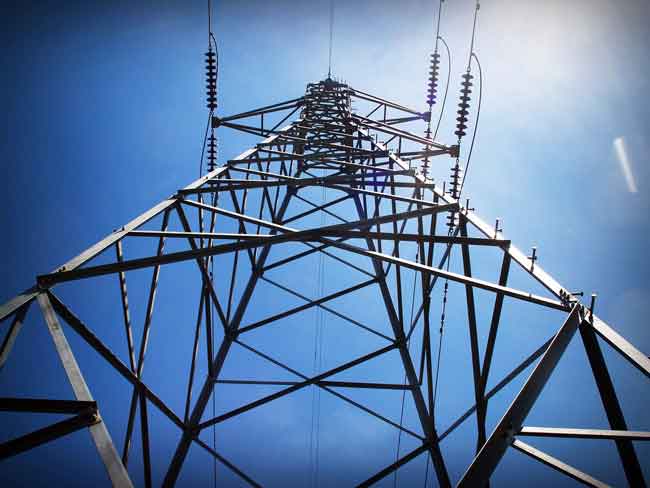PG&E, Edison among multi-million dollar ballot battlers
"A million dollars seems to be almost a new threshold," said Robert Stern, president of the Center for Governmental Studies, a Los Angeles think tank that focuses on campaign finance issues.
Spending on California ballot measures has been climbing in recent years, with the median amount spent on an initiative jumping from $4.3 million in 2000 to $15.7 million in 2006, according to a study the center issued earlier this year.
That growth has been fueled by increasingly large donations.
In 1990, a third of ballot measure donations came from contributors who gave $1 million or more. By 2006, two-thirds of the contributions were coming in those amounts.
Donors who have given at least $1 million have contributed 42 percent of the $139.5 million raised so far to pass or defeat 11 of the 12 measures on the Nov. 4 ballot, according to campaign finance reports filed with the secretary of state's office. One proposal, Proposition 12, a veterans home-loan bond measure, has attracted no money.
The parent companies of Pacific Gas & Electric Co. and Southern California Edison have given $27.5 million altogether to defeat Proposition 7, which would require utilities to get at least half of their power from renewable sources such as solar and wind by 2025.
About a dozen individuals also have contributed at least $1 million to ballot measure campaigns this fall, including Arizona billionaire Peter Sperling, who has given nearly $7.3 million to the campaign backing Proposition 7.
Clean Energy Fuels Corp., a natural gas company founded by Texas oilman T. Boone Pickens, has given $7.2 million to support another energy-related measure, Proposition 10. It would authorize the sale of $5 billion in bonds, in part to provide rebates of up to $50,000 for buyers of natural gas and other alternative-fuel vehicles.
And Broadcom co-founder Henry T. Nicholas III has given a total of $5.8 million to support two anti-crime measures, Propositions 6 and 9.
Ironically, Nicholas is facing federal fraud and drug charges that, among other things, accuse him of spiking the drinks of technology executives and customer representatives and maintaining a warehouse for ecstasy, cocaine and methamphetamine.
The report issued by Center for Governmental Studies recommended that California impose a $100,000 limit on the size of donations to a ballot measure committee, saying it would prevent one individual, company or group from dominating the debate.
"At some point, it really does corrupt the system," Stern said. "With enough money, you can qualify any measure.... (And) big money generally defeats any measure."
Steve Hopcraft, a spokesman for the Yes on Proposition 7 campaign, said a $100,000 donation limit would make it "much easier for small, grassroots campaigns to compete."
Without a limit, those campaigns have to rely on wealthy individuals such as Sperling to counterbalance corporate donors, Hopcraft said.
"He's doing this because he believes this is the right thing to do to combat global warming," Hopcraft added.
A spokeswoman for the No on 7 campaign, Kathy Fairbanks, had no comment.
But Marty Wilson, a consultant for the Yes on Proposition 10 campaign, said companies such as Clean Energy and PG&E "have a right to fight for the best interests of their ratepayers, shareholders and their employees" in supporting or opposing ballot propositions.
He said he was confident voters can "look at who's supporting a measure, who's opposing a measure and what the measure would accomplish and make the right decision."
"These types of (contribution) limitations are not really necessary nor are they practical," he added.
Any attempt to impose a limit on donations to ballot measures would require the U.S. Supreme Court to overturn a 1982 decision. That ruling shot down a Berkeley ordinance that attempted to put a $250 cap on contributions to ballot proposition campaigns in the city.
The current court would be unlikely to scrap the Berkeley ruling, but a donation limit would have a better chance in the future before a different lineup of justices, Stern said.
Related News

California's solar energy gains go up in wildfire smoke
LOS ANGELES - Smoke from California’s unprecedented wildfires was so bad that it cut a significant chunk of solar power production in the state. Solar power generation dropped off by nearly a third in early September as wildfires darkened the skies with smoke, according to the US Energy Information Administration.
Those fires create thick smoke, laden with particles that block sunlight both when they’re in the air and when they settle onto solar panels. In the first two weeks of September, soot and smoke caused solar-powered electricity generation to fall 30 percent compared to the July average, according to the California…





